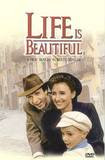In my years of blogging I’ve seen empathy shared on the most sensitive of topics, from eating disorders * to crises of identity and faith. Disclosure of personal struggles has traditionally been lacking in our culture, and many among us prefer it that way, yet there is a direct relationship between our level of candor and our level of caring. Of course I want to guard against emotional exhibitionism, but before we can carry one another’s burdens, we must first share them. As one friend said, “The first step toward becoming a friend people is being honest.”
I’ve made more friends than enemies as a blogger (I think), but the diversity of perspectives online and in person, inevitably yields conflict, and that opens space for beneficial sharing and it also opens space for stark confrontation. Even with friends well-suited to my comfort zones, I find my maturity and goodwill tested on a regular basis—and those are tests I often fail. But the challenges of conversing with charity, or at least with basic human decency, are what make it a valuable tool for spiritual growth. I could tell myriad stories about how friendship has enriched my life, strengthened my soul, and made me glad to be alive, but in the interest of time I’ll share just one.
Earlier this evening in a discussion with several friends, two women shared elements of their personal struggle with weight loss, conversation started about the Hcg diet and somehow came to one young woman in their neighborhood who had just been admitted to the hospital for an eating disorder. In hoping to offer companionship to fellow sufferers and perspective to others, I want to share something that for me was life-changing—and for a few, perhaps even life-saving.
 |
| {July '93} |
Given eating disorder sufferers' denial, how can people convince a friend or loved one that she might be suffering from an eating disorder - and needs medical help?
I have a friend who found a way to connect with me, she used 'I language' that really helped. Rather than telling me I had a problem, she simply expressed her own feelings and concerns over my well-being. She told me a story about her friend who had suffered kidney failure and was not able to have children. It was enough to scare me into really looking at what I was doing to my body and it truly helped me.
Thank you to you brave souls who have spoken straight. I have never said anything like this before and I’m frankly afraid to say it, but I feel genuine love for those of you who went through the dark, lonely “hour” that I did. And more than that, you have the integrity to admit it. This post today changed something in me, and convinced me that blogging, while sometimes a frivolous pursuit, can also be a sacred one.
****************************************************
*In the U.S., an estimated 10 million females and one million males are affected by eating disorders like anorexia, according to the National Eating Disorders Association. The conditions, which can be life-threatening, are usually treated with psychotherapy, along with careful attention to nutrition and care for any medical problems associated with the disorder.













